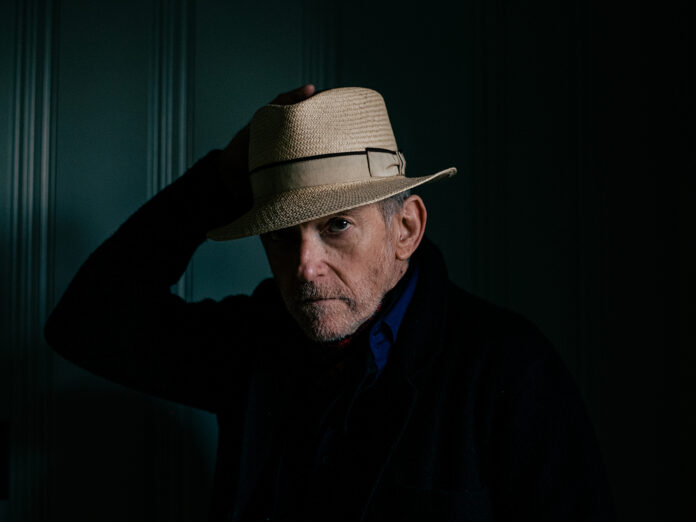Benmont Tench doesn’t name his pianos as such, but he lovingly distinguishes each of the keyboards he plays on his latest album. “Mr Tench’s piano” is a Steinway B. So is “the Village Recorder’s piano” used in the eponymous studio. “Mr Wilson’s piano”, belonging to producer Jonathan Wilson, is a 1913 Steinway A3. You get to know all these keyboard characters and more on The Melancholy Season, the gorgeous, heart-warming second solo album by a musician better known as a sought-after Los Angeles session player and lifetime member of Tom Petty & The Heartbreakers.
Benmont Tench doesn’t name his pianos as such, but he lovingly distinguishes each of the keyboards he plays on his latest album. “Mr Tench’s piano” is a Steinway B. So is “the Village Recorder’s piano” used in the eponymous studio. “Mr Wilson’s piano”, belonging to producer Jonathan Wilson, is a 1913 Steinway A3. You get to know all these keyboard characters and more on The Melancholy Season, the gorgeous, heart-warming second solo album by a musician better known as a sought-after Los Angeles session player and lifetime member of Tom Petty & The Heartbreakers.
Benjamin Montmorency Tench III’s artistic alliance with Petty stretches back to the early ’70s in their native Florida. He was a founding member of the Heartbreakers, collaborating joyfully across the decades until Petty’s untimely death in 2017 put a full stop on the band just as they had rounded off their 40th-anniversary tour. Since the early ’80s, he has also applied “the Tench touch” to countless records and sessions, starting with Stevie Nicks’ solo debut Bella Donna and Dylan’s Shot Of Love. He played alongside Petty on Roy Orbison’s Mystery Girl and has executed subtle work for Alanis Morissette, Jackson Browne, Aretha Franklin, Elvis Costello and, most recently, Ringo Starr and The Rolling Stones.
Tench is no flashy showman, sliding in like part of the furniture on Hackney Diamonds’ “Dreamy Skies”, brooding beautifully on Bonnie Raitt’s “I Can’t Make You Love Me” and delivering an emotional gut punch on Johnny Cash’s version of “Hurt”. He takes the same intuitive approach to his own music. “If a song shows up, you’ve gotta write it,” he told The Hollywood Reporter in 2014. Feargal Sharkey and Roseanne Cash have benefitted from his largesse, scoring hits with “You Little Thief” and Petty co-write “Never Be You”, respectively.
The songs that make up on The Melancholy Season have been percolating for some time, with births (his first child), deaths (Petty) and marriage (to writer Alice Carbone) all delaying recording. Tench favours a limited palette, citing Dylan’s John Wesley Harding and Lennon’s Plastic Ono Band, both uncluttered benchmarks using a small cast of players. Tench’s team here includes Jonathan Wilson, also on drums, bassist Sebastian Steinberg and classy cameos from Dawes’ Taylor Goldsmith, singer-songwriter Jenny O and Nickel Creek’s Sarah Watkins.
The opening title track is a gem of poetic parsimony, conjuring a world of turning seasons and moods from a few well-chosen phrases, layered with simpatico textures. First, the graceful stroking of piano, lithe and effortless, then gentle bassline, metronomic beat and the warm bath of organ, keeping it simple yet somehow sumptuous. It’s an arresting start, the work of a man alive to and respectful of his environment. “Pledge” is pacier and more voluble, a peppy meditation on the mysteries of time and nature with a touch of fabulism and Biblical allusions. It builds to a clamorous prayer for social justice, looking for some earthly redemption, and signs off with a well-aimed lyrical dart: “Jesus ain’t the only one that wept.”
Tench steers his team through the rollicking rock’n’roll of “Rattle”, an impish cavalcade of freewheeling philosophy and juke joint spirit, before dispensing with their services on bare bones ballad “If She Knew”. There is a husky sweetness to Tench’s tone, channelling some of the gruff melodrama of Lee Hazlewood here and the beer-goggled night vision of Tom Waits on mischievous lounge bar vignette “Wobbles”, which previously featured as an instrumental on his 2014 debut You Should Be So Lucky.
“Back” is delicious brooding R&B, with aqueous bassline, stealthy sustained notes on Hammond and acid inflections from Wilson on guitar. Tench sounds like a total cat but not so cool that he won’t beg for the return of his woman. He lets the vulnerability in his voice leak out on outlaw country amble “Like Crystal”. Accompanied by a loping bassline, like a trusty old steed, he sizes up the return of an old adversarial love. Even better, “Dallas” reels you in from the first line as Tench plays the mildly repentant drifter, raising a wizened toast to all the folks he’s vexed before.
Tench jokes that he sings like Chet Baker if Baker couldn’t sing. His second instrument has taken a battering in the decade since his debut, but he has emerged from mouth cancer surgery in 2023 with a rebuilt jaw, refreshed purpose and an album of songs encompassing beguiling naivety, terse wisdom and twinkling regret.
When you purchase through links on our site, we may earn an affiliate commission. Here’s how it works.



